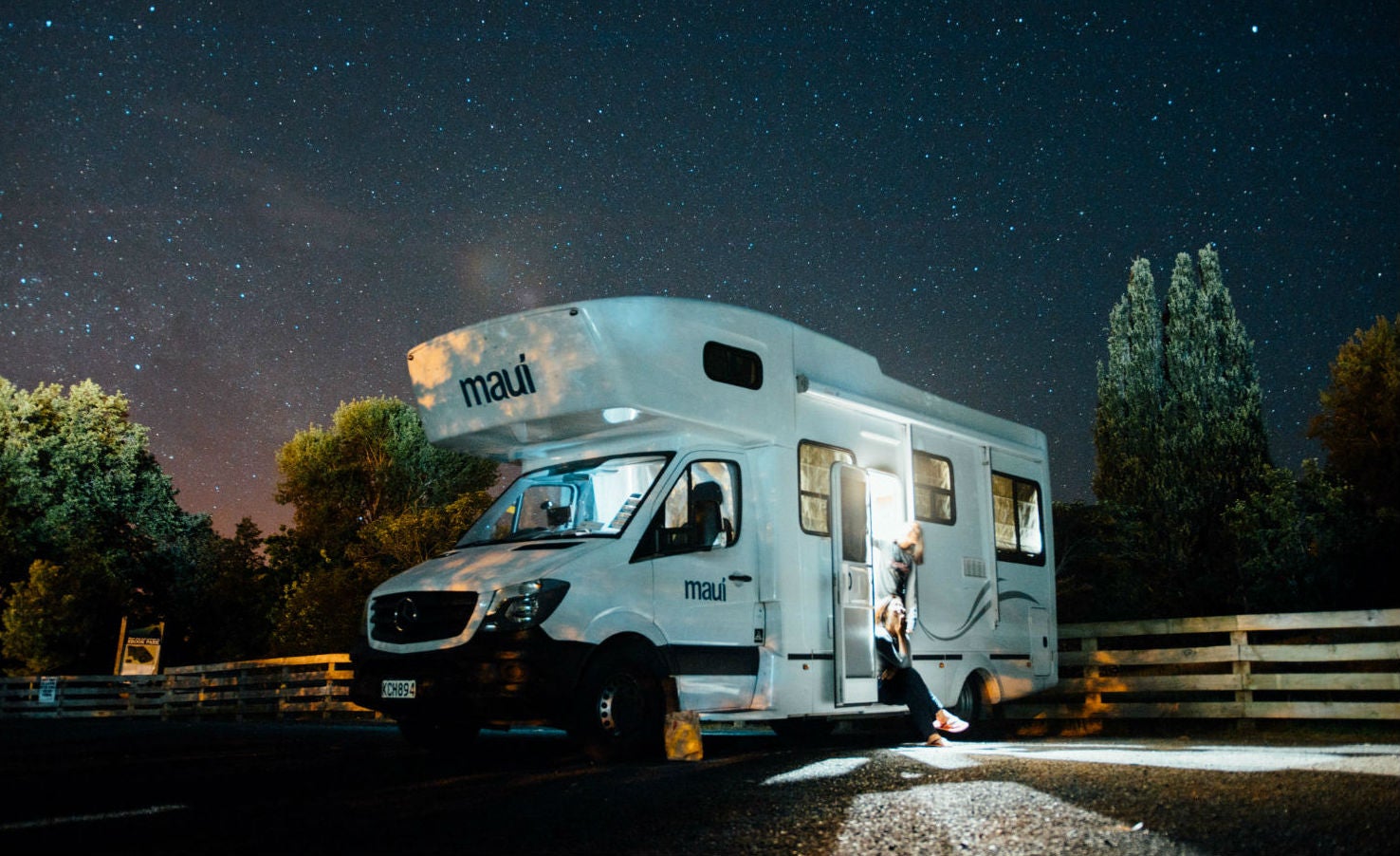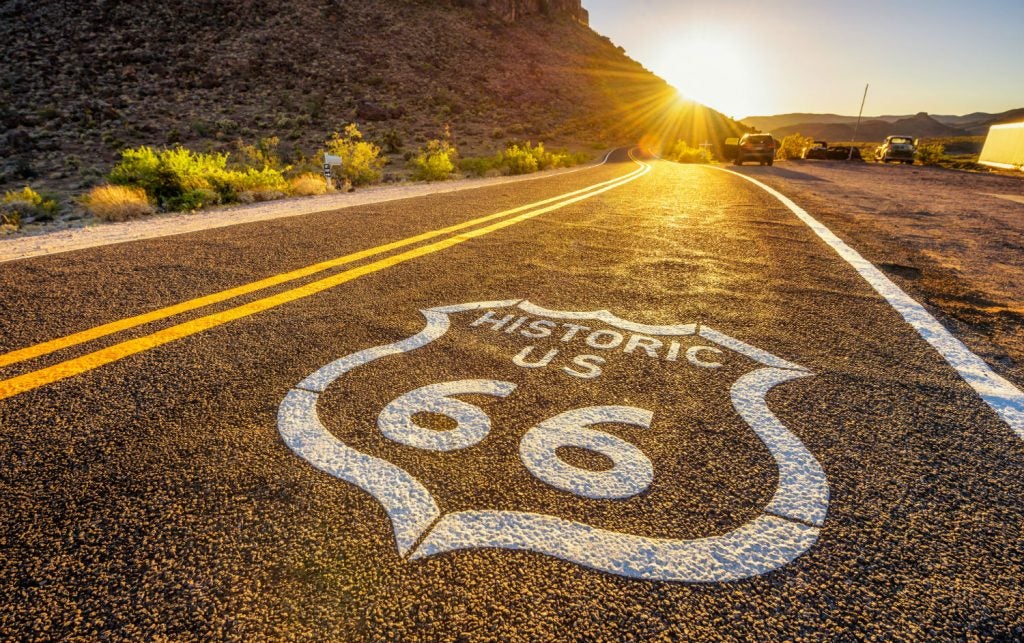There is no right or wrong way to go camping. (Assuming you’re not being a jerk to nature or your fellow campers.) Some of us love the freedom of bringing nothing but the necessities, while others like to enjoy nature with the comforts of a home on wheels.
But if you’re a regular camper — even if you love to keep it simple — we’re willing to bet that you’ve had the question cross your mind: Would camping be better in an RV?
Now first, let’s clarify. There are a bunch of different options when it comes to RVs. “Recreational Vehicle” can refer to a Class IV motorhome, or a compact campervan. Once you decide to upgrade to some sort of shelter on wheels, you’ll have another big decision in deciding which style and which size. But
From tent camping to RV camping: Is the upgrade right for you?
We can’t say for sure whether an RV will make camping better. But we can offer some things to consider, if you’re thinking about committing to RV camping:
1. Freedom
There are some places that tent campers can go that RVs can’t, and vice versa. With an RV, it’s more difficult to camp in the backcountry or more secluded places. Some people venture down dirt roads and boondock in their RVs, but navigating those bigger rigs to backcountry spots can be tricky.
Depending on the size you choose, you might also be more limited with an RV on the road in general. Popping into the grocery store for a quick errand or stopping at a restaurant becomes dependent on whether there’s enough space for you to park.
When it comes to accessibility, tent camping typically allows for more freedom and more access to more places.
2. Cost
The most obvious difference between RV camping and tent camping is the cost.
Perfectly decent tents can be purchased for under a hundred dollars, while RVs typically cost thousands — if not tens or hundreds of thousands. The sky is the limit when it comes to luxury options for RVs. (Though we haven’t seen one that actually flies just yet.)
After the initial cost of the RV, you’ll also pay more for fuel, maintenance, and campsite expenses because most campsites charge more for sewer and power connections.
3. Comfort
If comfort is high on your priority list, you might lean towards upgrading to an RV. With an RV, you aren’t as dependent on nabbing the best campsite at the campground. You don’t have to worry about the ground being too hard, or sloped, or cleaning up the sticks that might jab you in the back in the middle of the night.
You can create your own shade, use your own bathroom, have a place to sit, and escape extreme temperatures with air conditioning and heating. You can also sleep on a mattress instead of a blow-up or foam pad one.
4. Working from the road
If you work remotely, it’s much easier to do while RV camping than in a tent. With a table and a comfortable place to sit, you can work as comfortably from an RV as you can from home.
In a tent, you might have to contend with the weather, animals, dust, and dirt getting into your devices. It’s also much more difficult to keep your electronics charged. Sitting on a picnic bench or in a camping chair can also lead to poor posture and an aching back.
5. Weather
In an RV, you’re protected from the elements of strong sun, wind, rain, and snow. If the weather looks iffy, you can still go camping. A cozy night in the RV, listening to the rain patter on the roof is actually quite lovely. And while some people will say the same about sleeping in a tent in the rain — others prefer to stay dry.
6. Chores
In a RV, you’ll have the benefits of a sink and storage space, making cleaning and cooking about as easy as it is at home. Meanwhile, with tent camping, you rely on extra water containers or campsite facilities – some don’t allow you to wash dishes in the sink. Cooking outside in bad weather can be challenging at times, if not impossible.
7. Family travel
Camping is an activity that has bonded family members for generations. While both parents and children probably love both styles, RV camping has a few more conveniences that might make it easier to camp with kids and older relatives.
You’ll be able to bring more sporting equipment (and store it safely while you venture out), more accessible snacks, and space for everyone to spread out.
8. Supplies
Thanks to the extra space, you can bring more supplies when camping in an RV versus a tent, where you’ll likely be relying on a cooler for refrigeration. With RV storage, you can bring extra clothes, sporting gear, and food. This cuts down on trips to stock up on supplies when you’re camping long-term.
9. Setting up and packing up
If you’ve parked your RV somewhere for the night, you can simply secure your things and be on your way in the morning.
However, if you’ve fully unpacked the RV (connected it to sewage lines, power, rolled out shade features, and disconnected it from your vehicle), it can take over an hour to pack up. Meanwhile, setting up and packing up a tent usually takes around thirty minutes.
Of course, this varies from set-up to set-up and depends on the system you have.
10. Atmosphere and ambiance
Camping in a tent generally allows you to stay at campgrounds that have more of a rustic or off-grid vibe. They can be tucked away in the woods, where cars and RVs can’t disturb them with the sound of their engines and generators.
Some RV camping options are little more than parking lots. But you can research campsites on The Dyrt and see photos and reviews, so you’ll know in advance.
So… is it time?
There are pros and cons to both tent camping and camping with an RV. The best thing to do is to try both. Try renting an RV or a campervan for your next camping trip to get a feel for the other side of camping!
The Dyrt is the fastest-growing camping app on web and mobile, with new features being rolled out regularly. If you love the outdoors, discovering ideal spots to pitch your tent, and being part of a rich and active community, then join us.
The Dyrt is the only camping app with all of the public and private campgrounds, RV parks, and free camping locations in the United States. Download now for iOS and Android.Popular Articles:
Articles on The Dyrt Magazine may contain links to affiliate websites. The Dyrt receives an affiliate commission for any purchases made by using such links at no additional cost to you the consumer.



